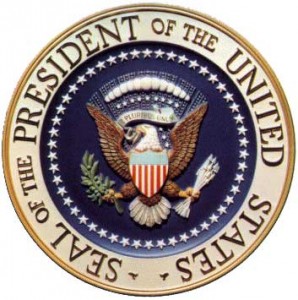A Vital Leadership Trend that Isn’t Yet a Thing
June 27th, 2012 // 5:42 pm @ Oliver DeMille
We ne ed a whole new level of leadership. And we need it soon. Just consider some of our pressing national challenges:
ed a whole new level of leadership. And we need it soon. Just consider some of our pressing national challenges:
- 75% of current Americans worry that another recession is coming.
- U.S. consumer confidence in June is at a six-month low.
- The average price of a gallon of gas in the United States was $3.88 at the beginning of the year and it is $3.48 halfway through the year. Most experts predict that it will be below $3 a gallon by the end of 2012. A few say it will be above $4. Either way, we have a problem. Lower prices look like a positive trend, but they keep us addicted to foreign oil. The pattern is to jack up prices until they hurt so bad that we begin seriously seeking alternative energy sources, then ease back on prices a little until we give up on finding a better way. Then, when we’ve stopped weaning ourselves from our addiction, jack the prices up again. Only the right kind of leadership will solve this for the long term.
- President Obama’s support is down since 2008 in almost every voting demographic, but it is up 2 points among Hispanics. Few election experts believe Mitt Romney can win the election—especially in the battleground states—without a significant uptick in Hispanic support. And Romney came across to many as sharply anti-immigrant during the 2012 Republican primaries. Neither 2012 presidential candidate has yet shown the will to establish a truly effective national immigration policy.
- The July 2, 2012 cover story of Time Magazine reads: “The History of the American Dream: Is it Still Real?” The Asian, European and South Pacific versions for the same date held an alternative cover story: “Made in China: Why Apple’s Future Depends on the World’s Largest Market.”
- A June column in Newsweek calls this year’s graduates “The Not-So-Special Generation.”
- Over two-thirds of Americans want the government to use unmanned drones to hunt down criminals, but two-thirds do not want the same technology used to patrol highways and issue speeding tickets. We want more government oversight of others, less of ourselves.
- A majority of Americans want the government to decrease spending, but there is little agreement on cutting any specific program.
Many other serious national concerns could be cited, but one thing is certain: We are a nation deeply in need of more, and better, leadership.
Sadly, it appears increasingly evident that our political leaders may no longer be able to fulfill this role.
The story of Barack Obama is instructive on this point.
As a lifetime liberal with long experience and connections in the progressive community, President-Elect Obama took over the White House with big intentions of reframing our national politics into a less divisive, more cooperative endeavor.
He seems to have been surprised at the vehemence of the two-party system, and how quickly the opposing party lined up to get him out of office—regardless of what he did, or didn’t do, as a leader.
President George W. Bush, who came into office with big goals of creating a more compassionate conservatism, faced the same reality—the opposition lined up against him before he proposed a single policy.
Whether you are a supporter of President Obama, a critic, or more neutral, the reality of our new politics is frustrating.
The next president, either in 2012 or 2016, will likely face the same problem.
Welcome to the new system in Washington: A president isn’t judged for what he does as much as for which party he belongs to.
We are a nation with major struggles and we desperately need great leadership, but our political system has reached the point where our top elected officials have little chance of providing such leadership.
The system simply won’t allow it.
The next campaign starts the morning after Election Day, with no break between elections and no sense of a U.S. president we’ll all follow for four years.
Today’s system is more divided: the chief executive is now widely perceived as only as the president of the Republicans or the president of the Democrats.
We are at a crossroads in America.
We need great leadership as much as at any time in our history, but our political system no longer allows it to come from Washington.
We may have reached the point where only an Independent President will be able to get anything done.
Or, another solution may be a revolution of leadership, with leaders rising from other—non-political—arenas.
This may be one of the most important trends of the 21st Century, but it is not yet a trend.
Needed: A generation of non-political leaders to help America get back on track!
***********************************
 Oliver DeMille is the co-founder of the Center for Social Leadership, and a co-creator of Thomas Jefferson Education.
Oliver DeMille is the co-founder of the Center for Social Leadership, and a co-creator of Thomas Jefferson Education.
He is the co-author of New York Times, Wall Street Journal and USA Today bestseller LeaderShift, and author of A Thomas Jefferson Education: Teaching a Generation of Leaders for the 21st Century, and The Coming Aristocracy: Education & the Future of Freedom.
Oliver is dedicated to promoting freedom through leadership education. He and his wife Rachel are raising their eight children in Cedar City, Utah.
Category : Blog &Current Events &Featured &Government &Independents &Leadership &Liberty &Politics &Statesmanship
A Third Power
June 25th, 2012 // 9:33 pm @ Oliver DeMille
Michael Strong wrote, in his excellent book Be the Solution: How Entrepreneurs and Conscious Capitalists Can Solve All the World’s Problems:
“A short history of twentieth-century economic and political thought might be summarized as:
“Market Failure! Markets don’t work as well as the classical economists thought and therefore we must control them (1900-1960).
“Government Failure! Governments don’t work as well as democratic theorists thought, and therefore we can’t depend on them to do the right thing either (1960-2000).”
 Markets are excellent for what they are for! Free markets create more wealth and distribute it more widely than any other economic model.
Markets are excellent for what they are for! Free markets create more wealth and distribute it more widely than any other economic model.
Under free markets we always witness a large middle class.
But the market doesn’t solve all problems in society.
Nor does government.
Neither markets nor governments solve everything.
Markets create more affluence and involve more people in prosperity than any other system, and governments are the most effective entity in protecting inalienable rights and maintaining laws that allow markets to flourish.
But there are a number of things governments should not do and markets will not naturally do, and these tend to be precisely the major challenges our society faces (and seldom solves).
If we are to effectively address society’s main ills (beyond a quality standard of living for most people and the protection of our rights and freedoms), people need to voluntarily take on the world’s ills and find ways to address them.
Charity, philanthropy, volunteer service, service project and social entrepreneurship (the creation of companies or projects with the specific goal of addressing societal problems) is vital.
Government is great for what it is for, but it becomes dangerous to all when it goes beyond its proper role.
Markets are fabulous for creating affluence and helping spread it to a large middle class, but they are not focused on fixing the various societal ills.
It is up to people to improve our world beyond the natural roles of government and markets.
The discussion nearly always centers around how government should do everything versus how government should do less and leave more to markets.
But those arguing for markets too seldom go out and really implement needed solutions in our communities and nation.
It’s time to get past the old Cold War argument.
Of course government should be limited, of course markets can do many things better than government, and of course markets depend on good government policy for safety and the rule of law.
But there is another piece to fixing the world: the non-governmental, non-market driven action of individuals who see a need and set out to make a difference.
***********************************
 Oliver DeMille is the co-founder of the Center for Social Leadership, and a co-creator of Thomas Jefferson Education.
Oliver DeMille is the co-founder of the Center for Social Leadership, and a co-creator of Thomas Jefferson Education.
He is the co-author of New York Times, Wall Street Journal and USA Today bestseller LeaderShift, and author of A Thomas Jefferson Education: Teaching a Generation of Leaders for the 21st Century, and The Coming Aristocracy: Education & the Future of Freedom.
Oliver is dedicated to promoting freedom through leadership education. He and his wife Rachel are raising their eight children in Cedar City, Utah.
Category : Blog &Culture &Current Events &Economics &Featured &Government &Leadership &Mission &Statesmanship
Pooled Sovereignty
June 21st, 2012 // 7:06 pm @ Oliver DeMille
 The breeding ground for a global system that supports pooled sovereignty is found in the top universities, and it is promoted by the bureaucratic elite in many nations.
The breeding ground for a global system that supports pooled sovereignty is found in the top universities, and it is promoted by the bureaucratic elite in many nations.
Much of what occurs in Washington only makes sense to those who understand this drift toward globalization.
For example, a push for increased government spending, debt and regulation on small business (even in the face of recession and a struggling economy) make perfect sense if the goal is to shift the American economy away from international leadership to global participation—to make the U.S. economy and government more like those of Europe and Asia.
Stimulus, universal health care, less entrepreneurship (through increased levels of government regulation)—all are necessary to create an American economy that can fit seamlessly with the industrialized European/Asian nations.
Another step in this process is to end the use of the U.S. dollar as the world’s reserve currency and replace it with an IMF or other currency.
The IMF has already proposed this change, and international support for it is growing.
Just to be clear, when the dollar replaced the British pound as the world’s reserve currency in the 1970s, the average net worth of nearly every home in Britain fell more than 30% the day after the change.
The British economy has still never fully recovered, nearly forty years later.
If the same change comes to the U.S., we will likely experience a worse economy for the next four decades than we have over the past four years.
Unfortunately, as Forbes reported, “It’s hard for the State Department to imagine an international agreement to which America is not part.” Republican and Democratic presidents since FDR have drastically decreased American freedom using treaties.
This is bad for Americans—good for pooled sovereignty.
Ultimately, there are two types of leadership that can turn this around: presidential leadership, and citizen leadership.
Sadly, few candidates for president (from either party) and exactly zero elected presidents since 1959 have effectively pushed back against this growing threat.
As for the American citizenry leading the charge, find out what percentage of your friends can tell you the details in the Law of the Sea Treaty, the Rome Statute, or UN Agenda 21, and that percentage is about how likely the people are to effectively lead.
In fact, this lack of citizen leadership means there is little incentive for presidents to take action against pooled sovereignty.
Or to put this in practical terms, a half-century with a bad economy is likely ahead.
Unless something changes…
***********************************
 Oliver DeMille is the co-founder of the Center for Social Leadership, and a co-creator of Thomas Jefferson Education.
Oliver DeMille is the co-founder of the Center for Social Leadership, and a co-creator of Thomas Jefferson Education.
He is the co-author of New York Times, Wall Street Journal and USA Today bestseller LeaderShift, and author of A Thomas Jefferson Education: Teaching a Generation of Leaders for the 21st Century, and The Coming Aristocracy: Education & the Future of Freedom.
Oliver is dedicated to promoting freedom through leadership education. He and his wife Rachel are raising their eight children in Cedar City, Utah.
Category : Blog &Citizenship &Current Events &Featured &Foreign Affairs &Leadership
The Battle of the 21st Century
June 7th, 2012 // 6:51 pm @ Oliver DeMille
 Once, science and religion and art were the same thing—the search for, and attempt to live, truth.
Once, science and religion and art were the same thing—the search for, and attempt to live, truth.
Then came the rise of dominant government and its attempts to control all.
In the Western world, religion and science were seen as the tools of power.
Sides were taken, and conflicts ensued. Left out of the battle, art developed in the shadows.
In the Orient, a different reality evolved.
Art and religion were considered the great centers of power, and so the lines were drawn and battles came.
Science, once at the forefront of Eastern culture, took a back seat. It grew, but behind the scenes.
By the early 21st Century, at least from the perspective of government power, science had become technology and art had become symbol.
Today the globe is increasingly divided between East and West.
A world is growing around China, encompassing the Orient and also much of the Middle East and Africa.
Another world is centered around the United States and includes most of Europe and the two American continents.
Russia and India have yet to take sides, and Japan is caught between its natural philosophical and geographical sides.
These two worlds have been based on the battle between religion and science in the West and the clash between art and religion in the East.
Ironically, the growing conflict between the two worlds coincides with the rise of each culture’s historical shadows—put succinctly, if the battle comes down to technology the East will win and if it comes down to symbolism the West will be victorious.
Tocqueville predicted in the 1830s that the world was destined to be divided by the followers of Russia and the allies of the United States.
He said that if the battle came down to military conflict Russia would win but if it came down to economics the United States would prevail.
Today, we can see the rise of China and the U.S. in similar terms.
But the idea that China will triumph if the battle is technological while the U.S. will succeed in a symbolic challenge seems counter-intuitive. After all, China is struggling to catch up with the U.S. in things technological and China has millennia of experience mastering symbol.
Still, it isn’t old sources of power that win new conflicts. Innovative power takes the day, and the battle of the 21st Century is lining up to be innovative technology versus innovative symbolism.
Ultimately, it all comes down to leadership. Vision. Creativity. Initiative. Ingenuity. Tenacity. Resiliency. Impact. Hope. Inspiration.
China and its associates will likely fight for its global interests using overwhelming centralized state technological might.
America and allies will push for a democratic world utilizing the massive power of the greatest ideas—chief among them freedom.
Both sides will use both technology and symbol, just like both Russia and the U.S. emphasized both military and economic strength.
But ultimately symbol must overcome centralized might.
The future of world freedom and prosperity depend on it.
Hopefully, the history of this century will not unfold this way, but currently the trends are heading in this direction.
The battle has already begun, and China is aggressively pursuing this course while the U.S. stagnating in a rut of decline.
The sooner America gets its act together, the better.
(An excellent book on how to add symbolic thinking to our analytical world is A Whole New Mind by Daniel Pink.)
***********************************
 Oliver DeMille is the co-founder of the Center for Social Leadership, and a co-creator of Thomas Jefferson Education.
Oliver DeMille is the co-founder of the Center for Social Leadership, and a co-creator of Thomas Jefferson Education.
He is the co-author of New York Times, Wall Street Journal and USA Today bestseller LeaderShift, and author of A Thomas Jefferson Education: Teaching a Generation of Leaders for the 21st Century, and The Coming Aristocracy: Education & the Future of Freedom.
Oliver is dedicated to promoting freedom through leadership education. He and his wife Rachel are raising their eight children in Cedar City, Utah.
Category : Arts &Blog &Culture &Current Events &Featured
Next…?
May 14th, 2012 // 10:16 am @ Oliver DeMille
THE NEXT BIG TREND: Pooled Sovereignty
by Oliver DeMille
I recently spent two days in a Barnes and Noble reading the bestsellers on current trends and issues. I do this as often as I can—at least three times a year.
Sometimes I emphasize business bestsellers, and other times I focus on political books.
When I was too ill to do these visits for a time, I used Amazon to order the bestsellers every four months. But I prefer the bookstore, because in addition to books it has all the leading periodicals.
How to Read a Book(store) in 4 Easy Steps
I usually find a comfortable chair and stack 20-30 volumes and magazines on the table or floor next to me. Then I skim everything that looks interesting. That’s Step 1.
Step 2 consists of reading the books and articles that really pique my interest. I read them closely, and take notes in my notebook. Step 2 takes at least three hours and sometimes a lot more. If needed, I go back for a second day of reading.
Step 3 is buying the books and periodicals I want to have in my personal library, and Step 4 is re-reading them and organizing my notes from the trip and writing as needed.
On this trip, my travel plans got delayed, so I ended up staying longer than expected. I perused the business bestsellers and added more books to Step 2. Then I skipped to Step 4 and studied three books I’d already read over the last two days.
When I do these bookstore research trips, I’m always looking for something special. I want to see developing trends, new directions, and significant key words that signal where cutting-edge thought is headed. Only once in a while do I find a truly Big Trend, one which promises to remake the future. “Pooled Sovereignty” is just this kind of trend.
Sovereignty Broken Down
Sovereignty is the final say on something, or, having the ultimate power. The American framers were so concerned with the abuses caused by the limitless power of the British government that they established America with split sovereignty.
This meant that the federal government had just twenty powers, all listed and numbered in Article I, Section 8 of the Constitution. The final say, or sovereignty, over everything else was left to the states, or to the people – and the states were limited in their respective constitutions.
The people were ultimately sovereign.
Moreover, just in case the federal government tried to ignore the Constitution and usurp sovereignty from the states and the people, the framers divided the smaller portion of sovereignty given to Washington D.C. into three branches and established checks and balances to keep too much power from accumulating in any one place.
For decades scholars, students and interested citizens from both Left and Right have warned that sovereignty is centralizing in Washington, that split sovereignty is being replaced by a massive centralized sovereignty—all power in one place.
Pooled sovereignty is even worse. This occurs where international organizations or treaties make the final decisions for the people, regardless of what national governments say. Indeed, some of the most damaging choices being made today are decided without the consent of Congress or the Supreme Court – not to mention the states or the people. They are made by treaties, the United Nations, G-20, World Bank, International Monetary Fund and other international organizations.
Most Americans turn off their thinking when they hear this list of international agencies—but the elite perk up with interest. This is where the buzz is.
The breeding ground for a global system that supports pooled sovereignty is found in top universities, and it is promoted by the bureaucratic elite in many nations. Much of what occurs in Washington only makes sense to those who understand this drift toward globalization.
The Grand Design
For example, a push for increased government spending, debt and regulation on small business (even in the face of recession and a struggling economy) make perfect sense if the goal is to shift the American economy away from international leadership to global participation—to make the U.S. economy and government more like those of Europe and Asia.
Stimulus, universal health care, less entrepreneurship (through increased levels of government regulation)—all are necessary to create an American economy that can fit seamlessly with the industrialized European/Asian nations.
Another step in this process is to end the use of the U.S. dollar as the world’s reserve currency and replace it with an IMF or other currency. The IMF has already proposed this change, and international support for it is growing.
Just to be clear: When the dollar replaced the British pound as the world’s reserve currency in the 1970s, the average net worth of nearly every home in Britain fell more than 30% the day after the change. The British economy has still never fully recovered, nearly forty years later.
If the same change comes to the U.S., we will likely experience a worse economy for the next four decades than we have over the past four years.
Unfortunately, as Forbes reported, “It’s hard for the State Department to imagine an international agreement to which America is not part.”[i] Republican and Democratic presidents since FDR have drastically decreased American freedom using treaties. This is bad for Americans, good for pooled sovereignty.
Ultimately, there are two types of leadership that can turn this around: presidential leadership, and citizen leadership.
We Need You to Lead Us
Sadly, few presidential candidates (from either party) and exactly zero elected presidents since 1959 have effectively pushed back against this growing threat.
As for the American citizenry leading the charge: find out what percentage of your friends can tell you the details in the Law of the Sea Treaty, the Rome Statute, or UN Agenda 21, and that is a predictor of how likely the people are to effectively lead.
In fact, this lack of citizen leadership means there is little incentive for presidents to take action against pooled sovereignty. Or to put this in practical terms, a half-century with a bad economy is likely ahead.
Unless something changes…
We need citizens who study what our government is doing, who read treaties and court cases and executive orders, etc. Without this, the age of American prosperity will continue to decline.
Where to start? The three books I closely studied at Barnes and Noble are an excellent beginning. If you are liberal, try Drift by Rachel Maddow. Conservatives will probably prefer Dick Morris’s book Screwed. If you’re an independent, read them both. In addition, everyone should read How Do You Kill a Million People by Andy Andrews. Just reading these books and the documents they cite would be a great study on current America.
The future belongs to our citizens—and the level of our citizenship will determine what happens in the years and decades ahead. If we are Type B citizens (who vote, go to jury duty, and watch the news), we’re going to witness the decay of American freedom and prosperity.
We need Type A citizens, who in addition to voting and jury duty also deeply study the issues, government documents and decisions our government officials are making. We can only influence things if we know what’s really happening.
And: Next?
The second day at Barnes and Noble, the intercom announced that children’s reading time was starting. I took a break from reading and walked over to see America’s future. One mother brought her small son, and she read a thick book while he enjoyed reading hour alone. I was surprised they went ahead with the reading hour when only one child showed up. I don’t know why others didn’t bring their children, and I wonder what kind of America this boy and his peers will inherit.
I asked his mother what book she was reading. It was titled—no lie—City of Lost Souls. I wish that boy had been joined by an army of his peers—preparing to lead.
All through history, free people have been nations of readers. When the people oversee the government, they remain free. When they don’t…

[i] Quoted in Screwed: How Foreign Countries are Ripping America Off and Plundering Our Economy – and How Our Leaders Help Them Do It by Dick Morris and Eileen McGann, HarperCollins, May 8, 2012.
Category : Aristocracy &Blog &Book Reviews &Citizenship &Constitution &Current Events &Foreign Affairs &Government &Independents &Leadership &Statesmanship











